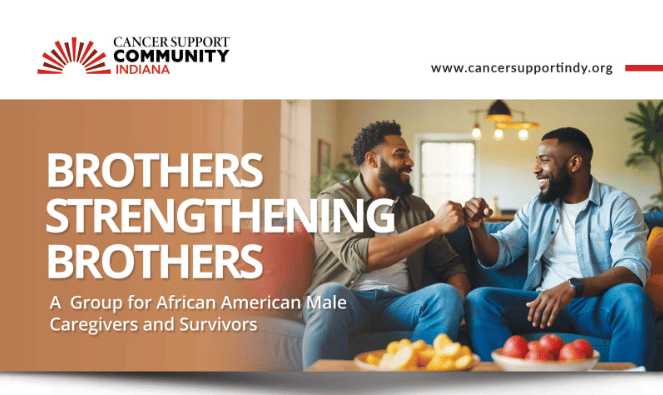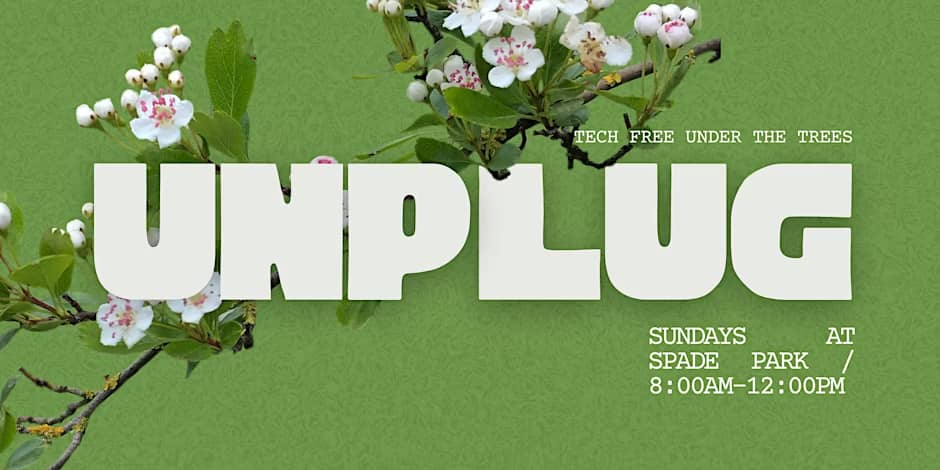Alzheimer’s disease isn’t just a health crisis; it’s a social and economic one, too. While African Americans make up only 13.6% of the U.S. population, they shoulder a third of the total costs of Alzheimer’s and other dementias. That’s a staggering burden, one that disproportionately affects women, caregivers, and entire families.
This week, we explore how systemic disparities, from healthcare access to neighborhood conditions, contribute to these alarming statistics. Just as improving community environments could prevent 1 in 4 cases of uncontrolled blood pressure, addressing the root causes of inequality could dramatically reduce the growing toll of Alzheimer’s in African American communities.
Make it a great week!
Featured Resources 🙌🏾
Mindful Moment 😌
Pause, follow the guide below, and observe 3-5 DEEP breaths. Notice any temperature sensations you can feel as you breathe–from the cooling or warming as you breathe in and out, to the temperature of the room you are in.
Mindful Movement 🙆🏾♂️
This week's practice helps build strength, enhance flexibility, and boost cardiovascular endurance through dynamic, flowing movements that challenge both body and mind. Try it 2-3 times this week and notice how you feel after each time!

Mindful Reflection ✍🏾
How do I typically respond to stress, and what practices can I introduce to respond more calmly and mindfully in the future?
Share your responses with us on Threads, and be sure to #balanceperiod
Affirmation 🗣️
Say this to yourself silently or out loud:
"I am worthy of peace, and I actively create space for calm and joy in my life every day."
Upcoming Health/Wellness Events 🗓️

Brothers Strengthening Brothers
This monthly gathering is intended to be a place where Black men who are either cancer patients or caregivers can connect to discuss experiences, difficulties, and successes.
- Saturday, June 14th, from 9:30 to 11:00 AM EDT
- Cancer Support Community [5150 W. 71st Street, Indianapolis, 46268]
|
|

Unplug at Spades Park
Take a break from scrolling, screens, and endless notifications to be with yourself and others this summer in Indy. No agenda. No pressure. No forced interaction. Just an opportunity to turn off in a world that’s always on.
- Sunday, June 15th, from 8:00 AM to 12:00 PM EDT
-
Spades Park (1800 Nowland Ave, Indianapolis, IN 46201)
|
The Heavy Toll of Alzheimer’s on African American Families 🙇🏽♂️💔
African Americans make up just 13.6% of the U.S. population, but they carry a third of the nation’s Alzheimer-related costs. And it’s not just financial, this disease is draining the emotional and physical well-being of entire communities.
What is Alzheimer's?
Alzheimer's is a progressive brain disease that affects memory, thinking, and behavior, making it harder for people to carry out everyday tasks. Some common risk factors include age (it’s more common in older adults), a family history of the disease, and certain lifestyle factors like poor diet and lack of exercise. Early signs of Alzheimer’s include memory loss, confusion about familiar places or people, difficulty completing daily tasks, and changes in mood or personality.
What’s really going on?
- Older African Americans are 2–3x more likely to develop Alzheimer’s or other dementias than white Americans.
- In 2012 alone, African Americans paid $71.6 billion in Alzheimer-related costs.
- Over 60% of these costs are shouldered by families, mostly women, and nearly half are concentrated in Southern states.
- Black caregivers provide 17.4 billion hours of unpaid care annually, worth $43.6 billion.
- $6.1 billion in lost wages hit African Americans aged 40–64 due to caregiving responsibilities.
- Medicare covers most direct medical costs, but African Americans still pay $554 million out-of-pocket.
- And as the Black population ages, these costs are projected to more than double by 2050.
Why is this happening?
- Systemic disparities in healthcare access, early diagnosis, and treatment.
- Underrepresentation in clinical trials, making treatments less effective for African Americans.
- Lack of culturally tailored caregiving support and mental health resources.
- Delayed or missed diagnoses, especially in Black patients, lead to worse outcomes and more expensive care.
What the research says
The financial burden of Alzheimer’s on the Black community is similar to that of cancer, heart disease, and diabetes, but the resources devoted to it don’t even come close.
Without serious investment, the situation will worsen, especially for Black women and caregivers.
What can we do?
- Increase Access to Education and Resources: Providing culturally relevant education and resources helps families manage emotional challenges, access financial planning, and reduce the strain of caregiving.
- Promote Early Diagnosis and Preventative Care: Early detection and intervention can improve quality of life, slow cognitive decline, and reduce the emotional and financial toll on families.
- Provide Community-Based Support and Caregiving Resources: Local support groups, caregiving resources, and services can alleviate emotional, physical, and financial burdens on families while promoting well-being.
- Advocate for Policy and Financial Support: Advocating for policy changes and financial assistance can reduce stress and financial strain on families, ensuring they have the resources to provide proper care.
A final note:
Alzheimer’s doesn’t just steal memories—it steals family time, financial security, and quality of life.
For African American families, that loss is multiplied.
If we want to reach equity in healthcare, we must confront the disproportionate weight of Alzheimer’s on Black communities.
Sources: African American Network Against Alzheimer’s – Full Report (2023), CDC National Center for Health Statistics, Alzheimer’s Association – Facts and Figures, American Journal of Public Health, National Institute on Aging – Alzheimer’s Research
Subscribe & Earn 💌
Looking for ways to boost your wellness and get rewarded for it? Subscribe to the Generational Wellness Digest and join our referral program! Share the love—refer a friend and get a free Mindful Merch when they sign up. It’s a win-win for your health and theirs!
Your Opinion Matters! 🙏🏾
We create this content with you in mind! Your feedback helps us make the Generational Wellness Digest even better. Let us know your thoughts on today’s volume so we can continue delivering value and inspiration that supports your wellness journey.
| What did you think of today's volume? |
|
|
|
|